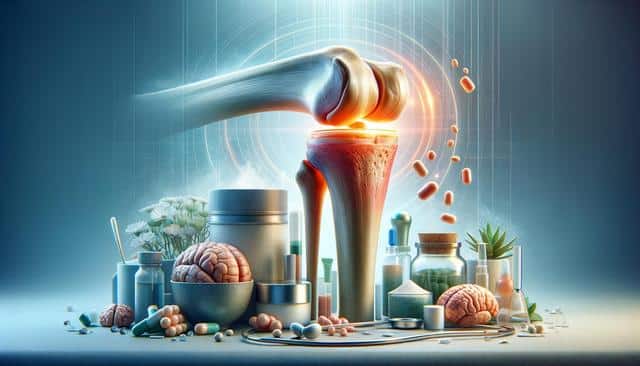
Exploring Effective Remedies for Knee Cartilage Regeneration
Understanding Knee Cartilage and Its Challenges
Knee cartilage plays a crucial role in joint health, acting as a cushion between bones to allow smooth and pain-free movement. When damaged due to injury, aging, or degenerative conditions like osteoarthritis, the body’s natural healing ability is limited because cartilage lacks its own blood supply. This can lead to stiffness, swelling, and chronic discomfort. Although the body doesn’t easily regenerate cartilage, several remedies aim to promote repair and manage symptoms effectively. Understanding the nature of cartilage and the mechanisms behind its deterioration is an essential first step in exploring treatment options. Addressing these challenges early can help minimize further joint damage and maintain mobility.
Medical Treatments for Cartilage Regeneration
Several medical interventions have shown promise in supporting knee cartilage regeneration. Among these, stem cell therapy is gaining recognition for its regenerative potential. Using the patient’s own stem cells, typically harvested from bone marrow or fat tissue, this therapy may stimulate cartilage growth and reduce inflammation. Another common option is platelet-rich plasma (PRP) therapy, which involves injecting concentrated platelets from the patient’s blood into the knee joint. These platelets contain growth factors that may aid tissue repair.
Hyaluronic acid injections are also widely used to improve joint lubrication and reduce pain. This treatment is often recommended for individuals with mild to moderate cartilage loss. In some cases, surgical procedures such as microfracture or autologous chondrocyte implantation (ACI) are considered. These invasive methods aim to restore cartilage by creating conditions favorable for its regeneration. While not suitable for everyone, they can be effective depending on factors like age, activity level, and the extent of cartilage damage.
The Role of Physical Therapy and Exercise
Physical therapy is a cornerstone in managing cartilage damage and enhancing knee joint function. A tailored physical therapy program can help improve muscle strength, joint flexibility, and overall knee stability. Strengthening the quadriceps and hamstrings reduces pressure on the knee joint, potentially slowing cartilage degradation. Low-impact exercises are especially beneficial, as they minimize stress while promoting circulation and joint health. Some recommended activities include:
- Swimming
- Stationary cycling
- Walking on even surfaces
- Yoga and stretching routines
Consistency is key. Working with a licensed physical therapist ensures that exercises are performed correctly and adjusted as needed. Over time, maintaining an active lifestyle with appropriate exercises can contribute significantly to joint health and support long-term mobility.
Nutrition and Supplements Supporting Cartilage Health
Nutrition plays an important role in supporting cartilage regeneration and preventing further joint deterioration. A well-balanced diet rich in anti-inflammatory foods can help manage symptoms and promote tissue health. Key nutrients beneficial for cartilage include omega-3 fatty acids, vitamin D, and antioxidants. Incorporating foods such as fatty fish, leafy greens, nuts, and berries may help reduce inflammation and support joint repair mechanisms.
Some individuals also consider dietary supplements to complement their diet. Common options include:
- Glucosamine and chondroitin sulfate
- Turmeric (curcumin)
- Collagen peptides
- MSM (methylsulfonylmethane)
While results may vary, some studies suggest that these supplements can offer modest benefits in reducing joint pain and improving function. It’s important to consult a healthcare provider before starting any new supplement, especially if taking medications or managing chronic conditions. A personalized approach based on medical advice can ensure safe and effective use of nutritional strategies.
Lifestyle Adjustments for Long-Term Knee Health
Beyond medical treatments and physical therapy, lifestyle choices play a vital role in preserving knee cartilage and promoting regeneration. Maintaining a healthy weight reduces pressure on the knee joints, which can slow down cartilage wear and improve mobility. Even a moderate reduction in body weight can make a noticeable difference in knee function and pain levels.
Other supportive lifestyle habits include:
- Wearing supportive footwear to enhance alignment and reduce impact
- Avoiding high-impact activities like running on hard surfaces
- Incorporating rest days to allow joint recovery
- Staying hydrated to support joint lubrication
Incorporating these habits into daily routines can enhance the effects of other therapies and contribute to overall joint health. Long-term commitment to these changes is essential, as cartilage regeneration is a gradual process that requires consistent care.
Conclusion: Taking a Holistic Approach to Knee Cartilage Regeneration
For individuals seeking to improve knee health and support cartilage regeneration, a comprehensive approach that combines medical treatments, physical therapy, proper nutrition, and lifestyle adjustments offers the most potential. While cartilage may not regenerate quickly or completely, these remedies can significantly improve joint function and quality of life. Consulting with healthcare professionals for a personalized plan is the first step toward managing cartilage damage effectively and maintaining long-term mobility.


